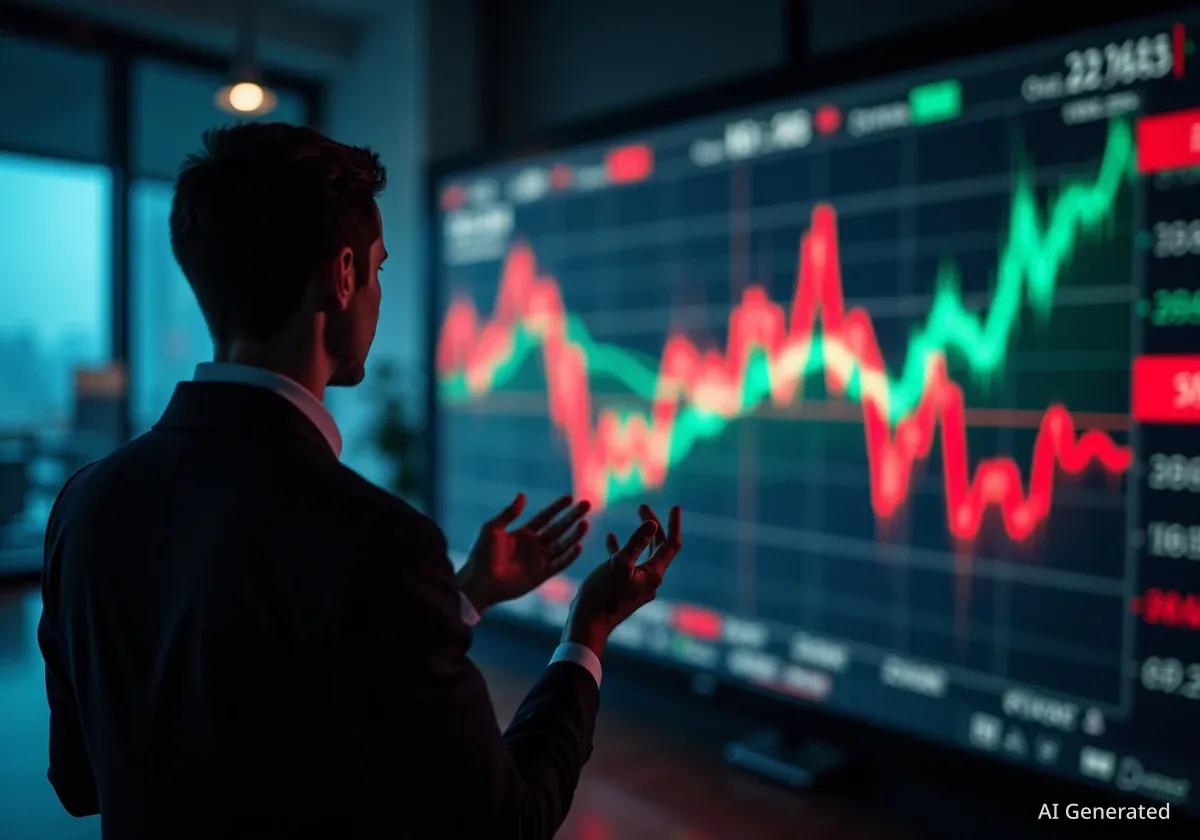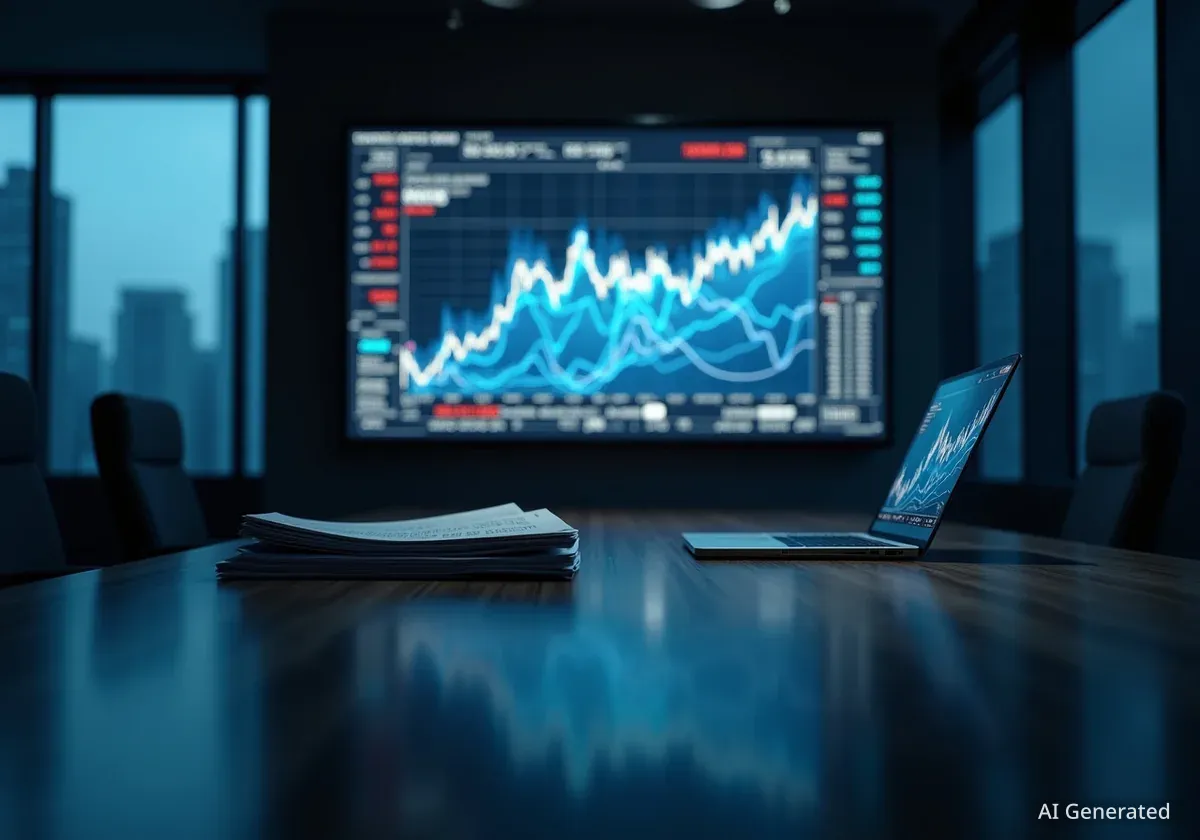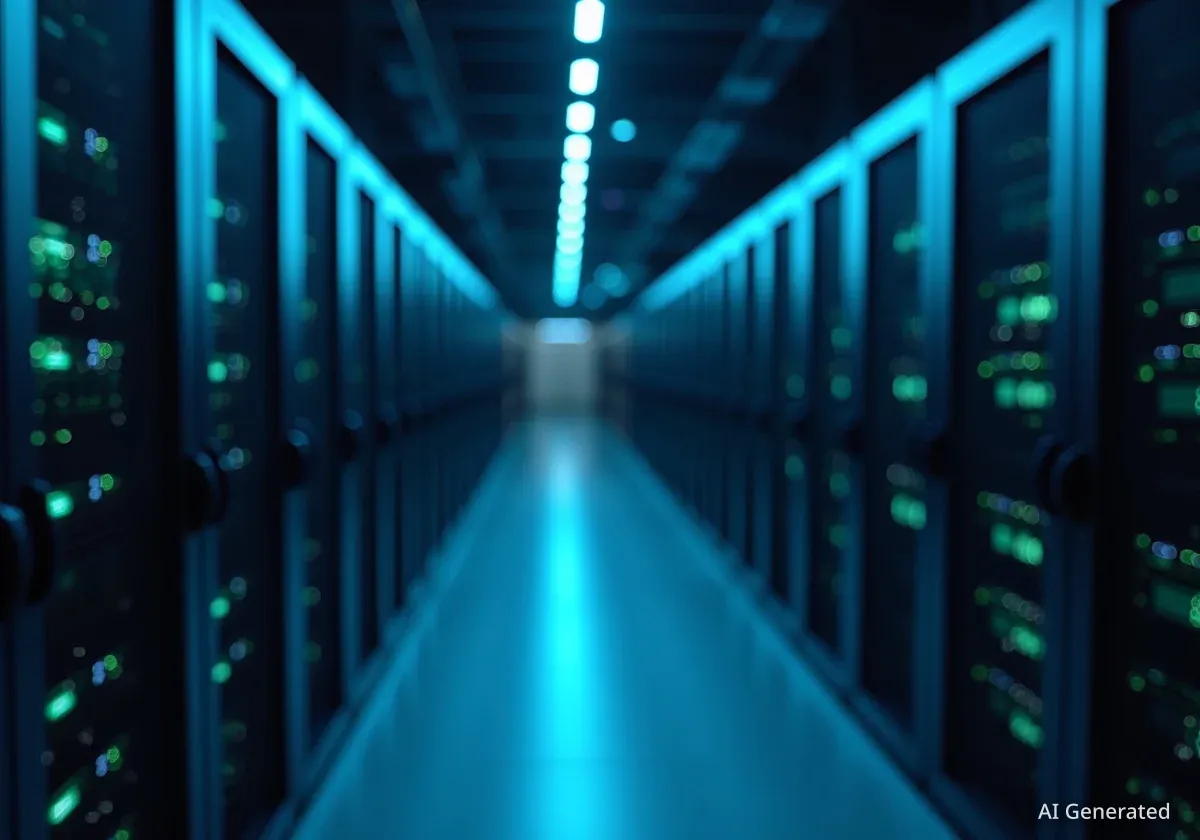OpenAI CEO Sam Altman has again addressed the potential for an artificial intelligence market bubble, stating that financial booms and busts are inevitable for the industry. During a recent tour of a new OpenAI data center, Altman acknowledged that poor investments will occur but expressed confidence in the technology's long-term potential to drive significant economic growth.
Key Takeaways
- Sam Altman described future financial "booms and busts" in the AI industry as an expected part of its long-term development.
- Economic data shows AI capital expenditures have recently contributed more to U.S. economic growth than consumer spending, highlighting the sector's significant influence.
- This is not the first time Altman has warned of an AI bubble; in August, he stated that investors were "overexcited" about the technology.
- Concerns persist about the profitability of major AI firms, despite hundreds of billions of dollars being invested into the industry.
Altman Addresses Inevitable Market Cycles
While visiting one of OpenAI's large-scale data centers under construction in Abilene, Texas, Sam Altman offered a long-term perspective on the financial stability of the artificial intelligence sector. When questioned about the risk of a market bubble that could destabilize the industry, he framed it as a natural part of a multi-decade technological shift.
"Between the ten years we’ve already been operating and the many decades ahead of us, there will be booms and busts," Altman stated, as reported by The Associated Press. He suggested that periods of both over-investment and under-investment are to be expected.
"People will overinvest and lose money, and underinvest and lose a lot of revenue," he explained.
Altman also conceded that mistakes in financial strategy are likely. "We’ll make some dumb capital allocations," he admitted. Despite these anticipated challenges, he maintained a firm belief in the ultimate economic impact of AI. He assured that "over the arc that we have to plan over, we are confident that this technology will drive a new wave of unprecedented economic growth."
Economic Reliance on AI Investment Grows
Altman's comments come at a time when the AI industry's financial influence is expanding rapidly, raising the stakes of any potential downturn. The level of investment being directed into AI infrastructure and development is now a significant driver of the broader economy.
A Startling Economic Indicator
According to Neil Dutta, head of economic research at Renaissance Macro Research, capital expenditures in the AI sector contributed more to U.S. economic growth in the last two quarters than all consumer spending combined. This analysis, reported by The Wall Street Journal, was based on data from the Bureau of Economic Analysis.
This statistic illustrates the economy's increasing entanglement with the success of the AI gold rush. With hundreds of billions of dollars flowing into the sector, a significant market correction or bubble burst could have ripple effects far beyond the technology industry. The immense capital outlay for data centers, specialized chips, and research and development has become a primary engine of economic activity.
This dependency fuels concerns among some economists. If the promised productivity gains from AI do not materialize quickly enough to justify the massive investments, the resulting financial contraction could impact overall economic stability.
A History of Cautious Prophecies
The recent remarks are consistent with a pattern of public warnings from Altman about the potential for excess in the AI market. In August, he was more direct in his assessment of the investment climate.
"When bubbles happen, smart people get overexcited about a kernel of truth," Altman told reporters at the time, as quoted by The Verge. When asked directly if the industry was in a bubble, he replied, "My opinion is yes."
Broader Warnings About AI's Impact
Altman's cautionary statements extend beyond financial markets. For years, he has publicly discussed more profound, existential risks associated with advanced AI, including:
- The potential to eliminate entire categories of jobs.
- The risk of crippling society with widespread misinformation.
- The speculative, long-term possibility of an uncontrollable superintelligence.
While discussing the financial bubble in August, Altman predicted that the eventual market correction would be severe for some. He noted that "someone" is poised to lose a "phenomenal amount of money" from misguided investments in the sector, though he added, "we don’t know who."
The Unanswered Question of Profitability
Underpinning the bubble concerns is a fundamental business challenge: many of the leading AI companies have yet to demonstrate a clear and sustainable path to profitability. The operational costs associated with training and running large-scale AI models are immense, requiring vast computational resources that are expensive to build and maintain.
Companies are investing billions based on the premise that generative AI will revolutionize productivity across nearly every industry. However, turning this revolutionary potential into profitable, scalable products that customers are willing to pay for at a high margin remains a significant hurdle.
The current market appears to be driven more by the promise of future breakthroughs than by current earnings reports. This gap between valuation and demonstrated profit is a classic indicator of a speculative bubble, where investor enthusiasm outpaces the underlying financial performance of the companies involved.
Balancing Hype with Cautionary Leadership
As the CEO of the company at the forefront of the generative AI movement, Sam Altman occupies a unique position. His public statements serve a dual purpose: they function as both a promotion of AI's transformative power and a warning of its potential dangers.
By openly discussing the risks—whether financial, societal, or existential—Altman positions himself and OpenAI as thoughtful stewards of a powerful technology. This approach can build public trust and preempt regulatory criticism by showing that the industry's leaders are aware of the potential negative consequences.
Simultaneously, these dramatic warnings can also function as a form of hype. Discussing the possibility of AI causing widespread job displacement or even an apocalypse underscores the technology's perceived power and importance. For investors, this narrative can reinforce the idea that AI is not just another tech trend but a fundamental shift in human history, making it a can't-miss opportunity.
Altman's confidence that OpenAI will navigate the inevitable "booms and busts" suggests a belief that his company will emerge as a long-term winner, even if others falter. His calm acceptance of market volatility reflects a strategy focused on a decades-long horizon, well beyond the immediate concerns of a potential bubble.





